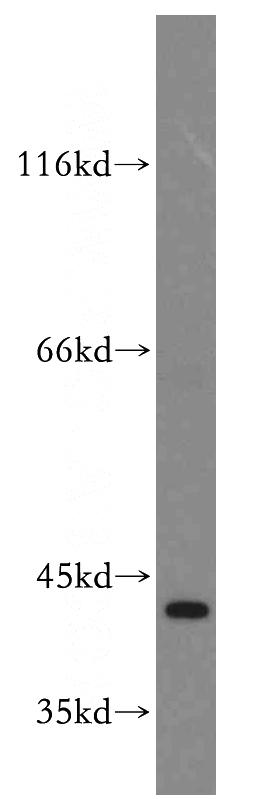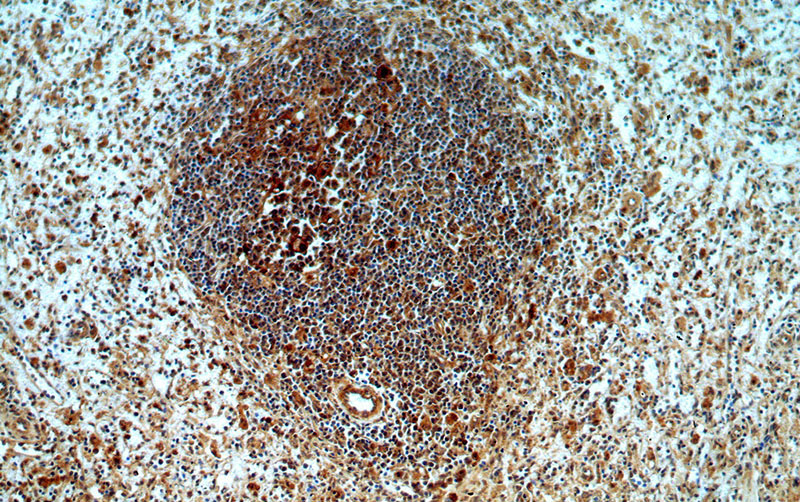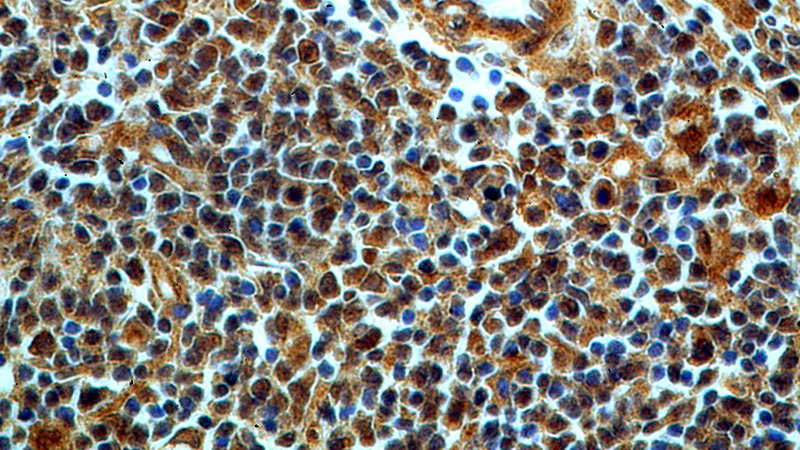-
Product Name
CAPG-Specific antibody
- Documents
-
Description
CAPG-Specific Rabbit Polyclonal antibody. Positive WB detected in mouse lung tissue, mouse kidney tissue, U-937 cells. Positive IHC detected in human spleen tissue, human stomach cancer tissue. Observed molecular weight by Western-blot: 43kd
-
Tested applications
ELISA, WB, IHC
-
Species reactivity
Human,Mouse,Rat; other species not tested.
-
Alternative names
Actin regulatory protein CAP G antibody; AFCP antibody; CAPG antibody; Macrophage capping protein antibody; MCP antibody
-
Isotype
Rabbit IgG
-
Preparation
This antibody was obtained by immunization of Peptide (Accession Number: NM_001747). Purification method: Antigen affinity purified.
-
Clonality
Polyclonal
-
Formulation
PBS with 0.02% sodium azide and 50% glycerol pH 7.3.
-
Storage instructions
Store at -20℃. DO NOT ALIQUOT
-
Applications
Recommended Dilution:
WB: 1:500-1:5000
IHC: 1:20-1:200
-
Validations

mouse lung tissue were subjected to SDS PAGE followed by western blot with Catalog No:108935(CAPG-Specific antibody) at dilution of 1:300

Immunohistochemical of paraffin-embedded human spleen using Catalog No:108935(CAPG-Specific antibody) at dilution of 1:50 (under 10x lens)

Immunohistochemical of paraffin-embedded human spleen using Catalog No:108935(CAPG-Specific antibody) at dilution of 1:50 (under 40x lens)
-
Background
CapG (gelsolin-like actin-capping protein) is a member of the gelsolin superfamily proteins, which regulates actin filament length by capping or severing filaments. Studies have shown a role for CapG in regulating cell motility. The expression of CapG is upregulated under hypoxia and in turn increases the motility of cells. Recently it has been reported that the overexpression of CapG is associated with the progression of lung adenocarcinoma as well as lyphatic invasion status of cholangiocarcinoma, which may be used for prognosis of these tumors.(21908955,22155129)
-
References
- Shao F, Zhang R, Don L, Ying K. Overexpression of gelsolin-like actin-capping protein is associated with progression of lung adenocarcinoma. The Tohoku journal of experimental medicine. 225(2):95-101. 2011.
Related Products / Services
Please note: All products are "FOR RESEARCH USE ONLY AND ARE NOT INTENDED FOR DIAGNOSTIC OR THERAPEUTIC USE"
